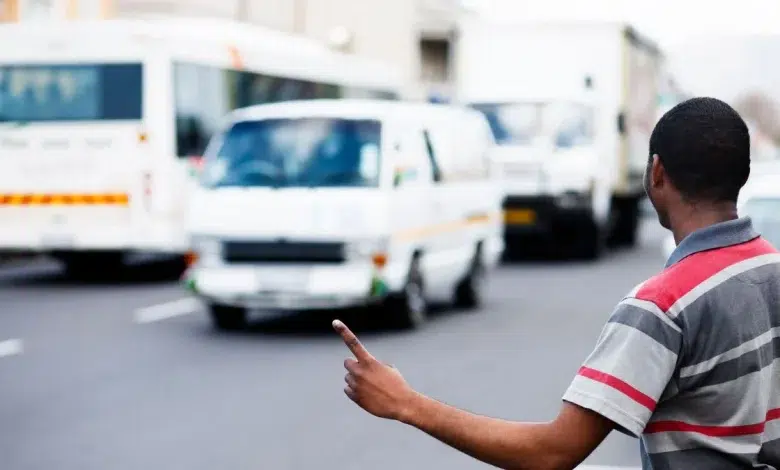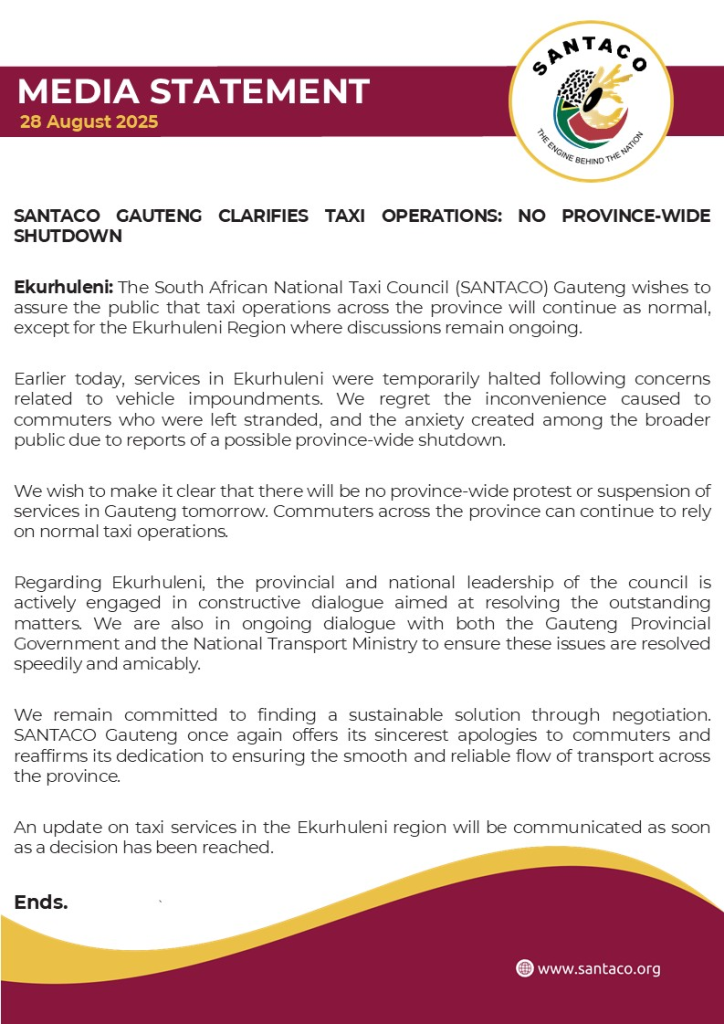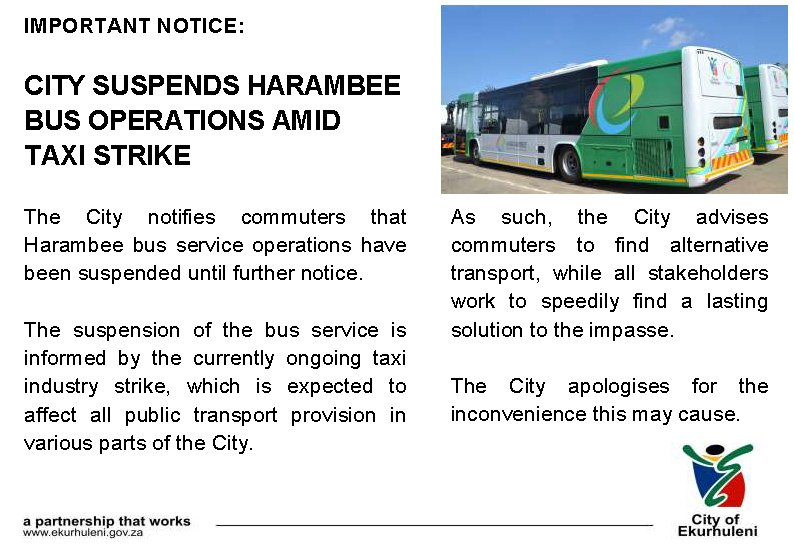Taxi Strike: City of Ekurhuleni Rejects Allegations Over Taxi Industry Crackdown

Commuters in Ekurhuleni are facing disruptions due to the ongoing taxi strike as taxi operators protest against a recent crackdown by local authorities. This has resulted in the impoundment of numerous taxis, mainly focused on certain vehicle types. However, the City of Ekurhuleni has denied charges that the crackdown is unfair or targeted.

INTERESTING READ: South Africans Injured in Car Crashes Struggle for Justice as RAF Bottlenecks Grow
Table of contents
- Background to the Crisis
- Ekurhuleni Taxi Strike: Taxi Operators’ Concerns
- City of Ekurhuleni’s Response
- Suspension of Harambee Bus Operations
- Ekurhuleni Taxi Strike: Impact on Commuters
- Ekurhuleni Taxi Strike: Regulatory Context
- Ongoing Dialogue and Future Prospects
- Commitment to Passenger Safety
- Broader Industry Challenges
- What Commuters Can Expect
- Importance of Effective Governance
Background to the Crisis
In August 2025, during an intense taxi strike, taxi operations were halted in parts of Ekurhuleni including Katlehong and Germiston. This action followed the impoundment of several taxis, particularly unlicensed “baby buses” with ten seats. Taxi operators claim these vehicle seizures are unjust and amount to selective enforcement, arguing that similar vehicles used in e-hailing and informal transport continue to operate without interference.
Ekurhuleni Taxi Strike: Taxi Operators’ Concerns
Leaders from the South African National Taxi Council (SANTACO) have voiced frustration, calling for urgent government intervention amid the taxi strike. They warn the ongoing enforcement action is crippling the taxi industry and places a disproportionate financial strain on legal operators. Taxi representatives assert that vehicles are being impounded unfairly and that the permit system is broken, restricting legal opportunities for taxi owners.

City of Ekurhuleni’s Response
The City of Ekurhuleni firmly rejects accusations that the crackdown is discriminatory and unrelated to the taxi strike. Officials have clarified that vehicle impoundments are based strictly on roadworthiness and compliance with operating permits. The local government insists its enforcement actions are necessary to ensure public safety and legal compliance within the transport sector.
Suspension of Harambee Bus Operations
Amid the taxi strike, the City of Ekurhuleni announced the immediate suspension of its Harambee bus service until further notice. This decision is due to the expected impact of the strike on all forms of public transport across the metro. The city has urged commuters to seek alternative transport options while stakeholders work tirelessly to resolve the impasse. Officials apologised for the inconvenience this suspension causes but emphasised that it is a necessary response to the current transport crisis.

Ekurhuleni Taxi Strike: Impact on Commuters
The taxi strike and suspension of the Harambee bus service have caused serious challenges for commuters. Many residents have been stranded or forced to rely on alternative transport, such as trains or e-hailing services, which have had capacity shortages and increased prices. This has heightened frustrations and exposed the vulnerability of the city’s public transport system.
Ekurhuleni Taxi Strike: Regulatory Context
Authorities emphasize the importance of enforcing transport laws to maintain safety standards. Vehicles without valid permits or those that are unroadworthy pose risks to passengers and other road users. The enforcement actions amid the taxi strike aim to regulate the taxi industry more effectively and curb illegal operations.
Ongoing Dialogue and Future Prospects
SANTACO and the City of Ekurhuleni both acknowledge the challenging state of the taxi industry exacerbated by the taxi strike. Calls for dialogue continue, with the hope of finding a balance between enforcement, industry viability, and commuter needs. Both parties encourage government involvement to resolve permit issues and avoid further disruptions.
Santaco Ekurhuleni regional secretary Zweli Mnisi said the decision to suspend services was not taken lightly but was necessary to protect operators from what it described as “selective and unfair law enforcement”.
Mnisi said, taxi operators were forced to pay fines of up to R5,000 per vehicle to retrieve their impounded taxis, costs they describe as unsustainable and crippling to their businesses.
Commitment to Passenger Safety
The City reaffirms its commitment to ensuring safe, reliable public transport. Enforcement efforts are designed to protect commuters by removing unsafe and illegal vehicles from roads during the taxi strike. This approach, officials say, ultimately benefits the public and supports sustainable transport development.
Broader Industry Challenges
The taxi industry in South Africa faces complex challenges, including competition with e-hailing services, regulatory compliance issues, and safety concerns. Addressing these requires cooperation between operators, government, and regulators to adapt to changing transport dynamics during the ongoing taxi strike.
What Commuters Can Expect
Residents in Ekurhuleni should prepare for ongoing disruptions due to the taxi strike as the situation develops. Authorities plan to maintain enforcement but also seek constructive engagement with stakeholders to minimise inconvenience and promote stability in public transport.
Importance of Effective Governance
The events in Ekurhuleni underline the critical role of transparent, consistent governance in the transport sector. Striking a balance between regulation, industry health, and commuter needs is key to sustainable urban mobility during a taxi strike.



